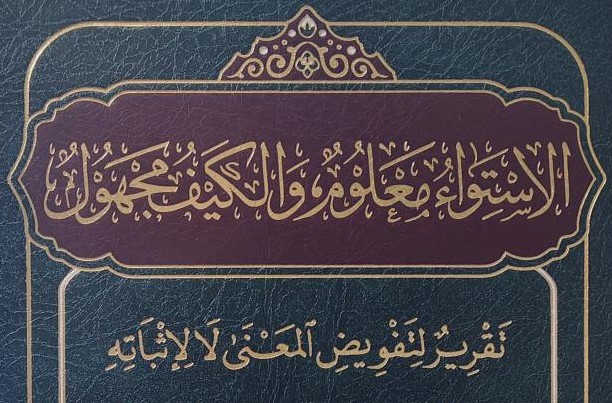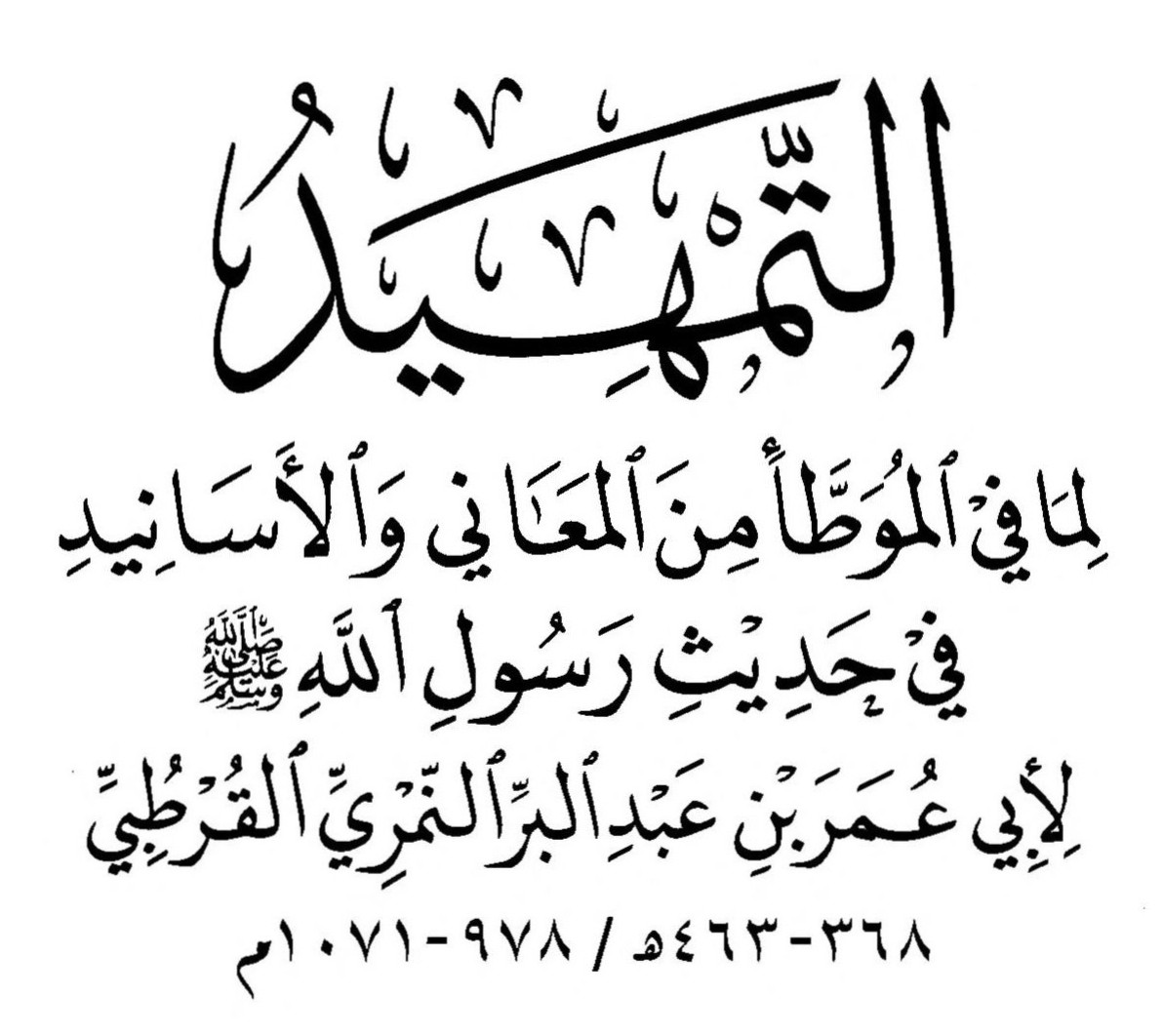
How to get URL link on X (Twitter) App


 Qur’ān: “He wraps (yukawwiru) the night over the day, and He wraps the day over the night.” This is referring to the alternation of night and day on [2]: the planet as a whole, not just a particular division of land.
Qur’ān: “He wraps (yukawwiru) the night over the day, and He wraps the day over the night.” This is referring to the alternation of night and day on [2]: the planet as a whole, not just a particular division of land.

https://twitter.com/YasirAlHanafi/status/1963685149008134639
 • “Ibn Taymiyyah is the first reputable Ḥanbalī to do tafwīḍ al-kayf only.”
• “Ibn Taymiyyah is the first reputable Ḥanbalī to do tafwīḍ al-kayf only.”https://x.com/YasirAlHanafi/status/1963685149008134639

https://twitter.com/gohyunel/status/1942216848373850473
 Note: This thread does discuss whether Ibn ‘Abd al-Barr’s views regarding movement (ḥarakah), the seating (ijlās), etc. are correct. Our objective is to only clarify what he did and did not believe in light of his own statements.
Note: This thread does discuss whether Ibn ‘Abd al-Barr’s views regarding movement (ḥarakah), the seating (ijlās), etc. are correct. Our objective is to only clarify what he did and did not believe in light of his own statements.

https://twitter.com/LeayAlKufi/status/1804094747176222837
 • “The mujassimah [Atharīs] didn’t like how al-Ṣābūnī was named ‘Shaykh al-Islām’ [since he was allegedly an Ash‘arī], so they named Abū Ismā‘īl al-Harawī the new ‘Shaykh al-Islām’ to turn the tables.” — Ibn al-Subkī
• “The mujassimah [Atharīs] didn’t like how al-Ṣābūnī was named ‘Shaykh al-Islām’ [since he was allegedly an Ash‘arī], so they named Abū Ismā‘īl al-Harawī the new ‘Shaykh al-Islām’ to turn the tables.” — Ibn al-Subkīhttps://x.com/LeayAlKufi/status/1804094769452453992

 Watch as Sa‘īd Foudeh goes back and forth with his fans…
Watch as Sa‘īd Foudeh goes back and forth with his fans… 

https://twitter.com/LeayAlKufi/status/1846963806003777926
 What Mr. Kūfī tried to distort is al-Baghawī’s words in his tafsīr concerning divine knowledge of tensed facts. He thought he did something—did he?
What Mr. Kūfī tried to distort is al-Baghawī’s words in his tafsīr concerning divine knowledge of tensed facts. He thought he did something—did he? https://x.com/mahmud_murrah/status/1844472976005267728

 [Note: This is a complicated subject which the average Muslim shouldn’t worry about. Turn back here and carry on with your day. ❤️]
[Note: This is a complicated subject which the average Muslim shouldn’t worry about. Turn back here and carry on with your day. ❤️]

https://twitter.com/mahmud_murrah/status/1705004262236078322
 The text of al-Ṭaḥāwiyyah was intended to represent the beliefs of the Salaf—there is no basis to restrict its scope of interpretation to a specific claimant of Ahl al-Sunnah (namely, the Ḥanafī Māturīdiyyah).
The text of al-Ṭaḥāwiyyah was intended to represent the beliefs of the Salaf—there is no basis to restrict its scope of interpretation to a specific claimant of Ahl al-Sunnah (namely, the Ḥanafī Māturīdiyyah). https://x.com/thirtyfivemmf2/status/1819869636248428918

https://twitter.com/Lebanese_Jam1/status/1821025458466525248
 The suspect starts this one by running around with the same “negation of kayf” mind games. This is a case of the famous Ash‘arī polemical strategy of sneakily drawing conclusions from premises they don’t follow from.
The suspect starts this one by running around with the same “negation of kayf” mind games. This is a case of the famous Ash‘arī polemical strategy of sneakily drawing conclusions from premises they don’t follow from. https://x.com/Lebanese_Jam1/status/1821025719226699820


 Argument #1: Ibn ‘Abbās said the ḥadīth of the qadamayn (two feet) is mutashābih, which entails that he did tafwīḍ of its meaning.
Argument #1: Ibn ‘Abbās said the ḥadīth of the qadamayn (two feet) is mutashābih, which entails that he did tafwīḍ of its meaning.

https://twitter.com/mahmud_murrah/status/1780045773163405358
 [Introduction] The historian Bāmakhramah (d. 947), an Ash‘arī Shāfi‘ī scholar, makes mention of the ‘aqīdah of the famous Atharī Shāfi‘ī Imām al-‘Imrānī (d. 558) being widespread amongst the scholars of Yemen.
[Introduction] The historian Bāmakhramah (d. 947), an Ash‘arī Shāfi‘ī scholar, makes mention of the ‘aqīdah of the famous Atharī Shāfi‘ī Imām al-‘Imrānī (d. 558) being widespread amongst the scholars of Yemen. 

 [1] A number of the Salaf affirmed a makān (place) for Allāh.
[1] A number of the Salaf affirmed a makān (place) for Allāh.

https://twitter.com/Hassan_maturidi/status/1713674512074412384[1] Imām al-Bukhārī quoted from Mujāhid and Abū al-‘Āliyah (students of Ibn ‘Abbās) that they explained “istawā ‘alā al-‘Arsh” to mean ‘alā (ascended) and irtafa‘ (rose) respectively. You instead explained these terms to mean “exaltedness,” “loftiness,” or “grandeur.”


https://twitter.com/truthunveilled/status/1491932358618103832The main reason the authenticity of al-Fiqh al-Akbar is a highly contested topic revolves around its listing of tenets that creedal proponents of Ahl al-Ḥadīth deny, such as Allāh’s actions being timeless/pre-eternal or excluding ḥurūf (letters) from Allāh’s uncreated Speech.


https://twitter.com/Lubnanix/status/1687943039606575104This claim is apparently based exclusively on Ibn Ḥajar’s words, “As for theological issues, [al-Bukhārī] took most of it from al-Karābīsī and Ibn Kullāb.” He provided no source for this, so it is either to be accepted with supporting evidence or rejected with opposing evidence.


https://twitter.com/D1mashqi/status/1497589624969084928Note: A considerable portion of this thread is based on Shaykh Karīm Ḥalmī’s work and also the article of brother Bassām Zawādī.

 And elsewhere in his Sharḥ Uṣūl Iʿtiqād (2/65–66), Imām Abū al-Qāsim al-Lālikāʾī (d. 418) mentions this report of Ibn ʿAbbās (d. 68) under the chapter on the affirmation of the Face (الوجه), the two Hands (اليدين), and the two Eyes (العينين).
And elsewhere in his Sharḥ Uṣūl Iʿtiqād (2/65–66), Imām Abū al-Qāsim al-Lālikāʾī (d. 418) mentions this report of Ibn ʿAbbās (d. 68) under the chapter on the affirmation of the Face (الوجه), the two Hands (اليدين), and the two Eyes (العينين). 

https://twitter.com/LeayAlKufi/status/1655517031092076544This specific wording in which Sufyān ibn ʿUyayanah (d. 198) says not to explain it in Arabic or Persian contradicts other more authentic wordings from him, and this chain can also be said to contain weakness, as you have mentioned.
https://twitter.com/LeayAlKufi/status/1655517034644664320

https://twitter.com/HarounKanj/status/1646270767775244288(1) Firstly, Imām al-Ṭabarī (d. 310) does affirm that the Qurʾān is uncreated… but which Qurʾān is he talking about? This is an important question that requires an answer on your part, since the Ashāʿirah don’t believe in just one.
https://twitter.com/HarounKanj/status/1646270780492378115

https://twitter.com/D1mashqi/status/1559306886318796800…and for the belief of the Salaf in general regarding Al-Istiwāʾ, one may refer here.
https://twitter.com/mahmud_murrah/status/1651004295700172800